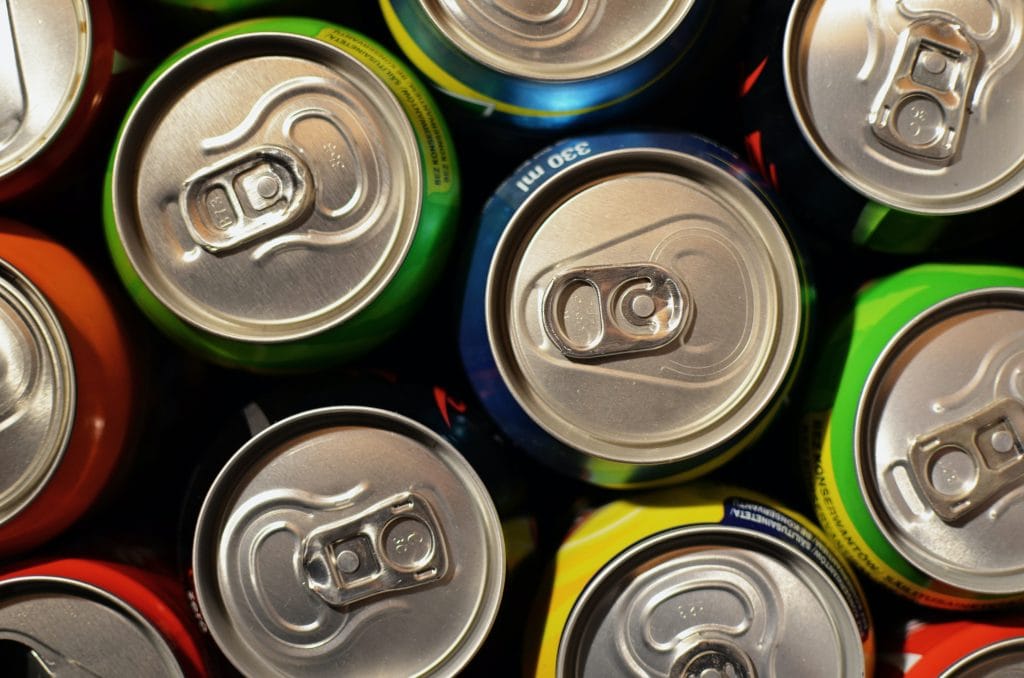Sugar-free carbonated drinks are considered diet drinks; they supposedly do not contribute to weight gain and are not harmful to health. We decided to check if this is true.
They claim that sugar-free soda is healthier than regular soda sellers And manufacturers these drinks. Such statements can be found on some websites, dedicated to diets, in glossy magazines, blogs on "Yandex.Zene". Hollywood actor Matthew McConaughey, who had to lose more than 20 kg for his role in the film “Dallas Buyers Club,” told in an interview that an important part of his diet was sugar-free cola.
In recent decades nutritionists regularly remindthat sugar is harmful, it is addictive (we already wrote about this), leads to obesity, skin and dental problems, and increases the risk of cardiovascular diseases. And many food manufacturers, not wanting to lose customers, started replacing sugar with artificial sweeteners, claiming that this is a much healthier and healthier alternative.
Carbonated drinks labeled as Light, Diet or Zero, truly do not contain any calories or carbohydrates. It would be logical to assume that they can be drunk without harm to your health and figure - this is what marketers insist on. But many scientists disagree with them.
Conducted in the USA study showed that drinking drinks containing sweeteners increases the risk of strokes and dementia by almost three times. The researchers did not find a similar relationship with sugar-sweetened drinks. Scientists from the University of Texas found outthat daily consumption of diet soda significantly increases the risk of developing metabolic syndrome and type 2 diabetes (although it is still half as lowthan when drinking regular sweet soda with the same frequency).
Scientists and doctors have been study the impact of sweeteners (including in soda) on weight control and loss. Many of which came to the conclusionthat diet drinks do not bring any significant benefit for these purposes. On the contrary, they can even help increase your body mass index. However, the researchers emphasize, before putting an end to this issue, it is worth studying it further.
Very fresh study A 2021 study conducted by scientists from the University of Southern California indicates that drinks with the sweetener sucralose, although they do not contain calories, cause an increase in appetite and an increased feeling of hunger in some subjects. This pattern was observed in overweight people and women. Moreover, these results were confirmed both by magnetic resonance imaging (the subjects were shown images of food and nerve impulses in the brain were recorded) and by an analysis of hormones (those responsible for the feeling of fullness were decreased, and those responsible for hunger, on the contrary, increased). In the future, this can lead to overeating, diet failure and, accordingly, weight gain.
Another group of scientists found outfound that people who drink low-calorie soda are 53% more likely to have abdominal obesity (fat deposits in the belly area) than those who avoid it. The waist of such people was on average 2.6 cm larger in girth.
Australian scientists also came to the conclusionthat carbonated drinks with sweeteners increase appetite and promote the consumption of more calories. This is because our brain associates sweet taste with the energy that carbohydrates provide. If the balance between sweet intake and energy is disturbed, the brain sends signals that this needs to be compensated for with something else. Experiments on fruit flies showed that after just a week of regular consumption of sweeteners, the insects began to eat 30% more calories than when they were given food with natural sweeteners. The same effect was observed in experiments on mice. True, some researchers think, What experiments This is not confirmed in humans and there is no convincing evidence that the conclusions obtained are valid for humans.
British epidemiologist and science writer Tim Spector, author of the book “Diet Myths,” devoted an entire chapter how soda with sweeteners affects our body. Having conducted his own research and systematized existing ones, he also came to the conclusion that artificial sweeteners can contribute to the development of type 2 diabetes, obesity, digestive disorders, etc. Spector also notes that, replacing sugar, which has an antibacterial effect, manufacturers often add chemical preservatives to products. And their effect on metabolism has been poorly studied. This, of course, does not apply to soda, which has nothing special to preserve, but sweeteners are added not only to it.
In addition, artificial sweeteners, like sugar, contribute increased blood pressure - in this sense, there is a special difference between them, scientists not identified.
Norwegian And Danish Researchers have found that pregnant women who regularly drink at least one can of sweet soda (whether with sugar or sugar substitutes) increase the risk of premature birth by almost one and a half times. However, none of their studies explain the reasons for this effect.
Even though zero-calorie sodas don't contain sugar, one of the leading causes of tooth decay, they are just as bad for your teeth as anything else. Scientists found outthat there is no difference between the effect of these two types of drinks on dental health: both increase the acidity in the mouth, which ultimately leads to the destruction of enamel and caries. With them agree and experts from oral hygiene products manufacturer Colgate. They note that diet drinks contain several other types of acids (for example, citric and tartaric), and this is another blow to the enamel.
Thus, sugar-free carbonated drinks containing artificial sweeteners are not a healthy alternative, since the negative effects on the human body are similar to those of sugar-sweetened drinks. The evidence that such soda can help you lose weight is also quite contradictory: some scientists believe that, on the contrary, it contributes to excess weight gain, that is, even more harmful than usual.
Mostly not true
Read on the topic:
- Tim Spector. Myths about diets. The science of what we eat
- Is it true that if you eat a lot of sweets, you will develop diabetes?
- Is it true that brown sugar is healthier than white sugar?
If you find a spelling or grammatical error, please let us know by highlighting the error text and clicking Ctrl+Enter.








